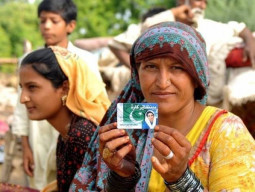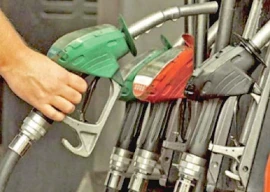
Nawaz, who was discharged on Tuesday from the hospital, refused to be moved to Raiwind at the eleventh hour because Maryam had not been released from the prison despite the submission of surety bonds and passport to the court.
The 69-year-old Pakistan Muslim League-N (PML-N) supremo was first taken to the government-run hospital last month after his health deteriorated.
Nawaz was granted bail on medical grounds by the Lahore High Court (LHC) in a National Accountability Bureau (NAB) investigation pertaining to Chaudhry Sugar Mills, and the Islamabad High Court granted an eight-week suspension of his seven-year sentence awarded by accountability court judge Arshad Malik in the Al Azizia Hill Metal Establishment corruption reference.
PML-N Spokesperson Marriyum Aurangzeb stated that the three-time prime minister will not be treated at Sharif Medical Complex. He will be treated at the Raiwind residence where an ICU unit has been established under the supervision of the former premier's personal physician Dr Adnan Malik.
ڈاکٹر عدنان کی زیر نگرانی شریف میڈیکل سٹی ہسپتال نے نوازشریف کی رہائش گاہ پر انتہائی نگہداشت یونٹ قائم کیا
— Marriyum Aurangzeb (@Marriyum_A) November 6, 2019
آئی سی یو میں ڈاکٹرز 24 گھنٹے موجود رہیں گے
ڈاکٹرز کی ہدایت پر نوازشریف کو انتہائی نگہداشت میں رکھا جائے گا pic.twitter.com/iXZlyeoGq7
Nawaz ‘delays his discharge from hospital’ until 'Maryam's release’
Nawaz's medical condition
At the Services Hospital, Nawaz was diagnosed with acute idiopathic thrombocytopenic purpura (ITP).
More commonly referred to as immune thrombocytopenia (ITP), it is a disorder that can lead to easy or excessive bruising and bleeding. According to Mayo Clinic, the bleeding results from unusually low levels of platelets — the cells that help blood clot. The symptoms include easy or excessive bruising, superficial bleeding into the skin that appears as pinpoint-sized reddish-purple spots (petechiae) that look like a rash - usually on the lower legs, bleeding from the gums or nose.
During his hospital stay, the former prime minister underwent a five-day Intravenous Immunoglobulin (IVIg) - which, according to Harvard Medical School, is primarily used to treat other autoimmune and inflammatory conditions. Intravenous immunoglobulin (IVIG) contains the pooled immunoglobulin G (IgG) immunoglobulins from the plasma of approximately a thousand or more blood donors, according to E-medicine.
The former prime minister also suffered an angina attack during his hospitalisation and also suffers from diabetes.
Maryam’s bail may augur well for NAB accused
Maryam's bail
The LHC order noted that no satisfactory reparation can be offered to an innocent man for his unjustified incarceration at any stage of the case albeit his acquittal in the long run.
Although the Section 9(b) of the National Accountability Ordinance 1999 ousts the jurisdiction of all courts to grant bail to any person accused of committing an offence under the said ordinance, but the Supreme Court's 2003 verdict in Asfand Yar Wali case allows high courts to grant bail to the accused persons in ‘extraordinary circumstances’ and hardship cases.
The high court also referred the apex court’s 2003 judgment in the Abdul Aziz Khan Niazi case, wherein it was held that the ultimate conviction and incarceration of a guilty person can repair the wrong caused by a mistaken relief of bail granted to him, but no satisfactory reparation can be offered to an innocent man for his unjustified incarceration at any stage of the case albeit his acquittal in the long run.


1731486962-0/liam-(10)1731486962-0-165x106.webp)


1731489300-0/Copy-of-Untitled-(36)1731489300-0-270x192.webp)











COMMENTS
Comments are moderated and generally will be posted if they are on-topic and not abusive.
For more information, please see our Comments FAQ